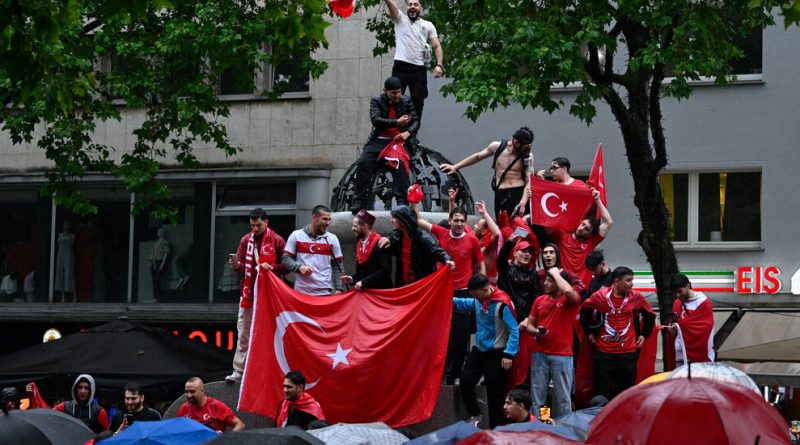Why Turkey Is Euro 2024’s Second Home Team

Erkan Aykan does not require a second invitation to share his claim to fame. He grew up in a Turkish family in Gelsenkirchen, an industrial city nestled in the heart of Germany’s Ruhr valley. Somewhat more famously, so did Ilkay Gundogan, the captain of the country’s soccer team. “I know his cousins,” he said, proudly.
Listening politely, perhaps a touch indulgently, his brother Talha waits for Erkan to finish, and then immediately one-ups him. “He was in my class at school,” Talha said of Gundogan. “I played soccer with him when we were kids.”
The speed with which both men set about establishing their Gundogan credentials illustrated their pride in having a connection with the Germany captain, and their satisfaction at seeing him now leading their country at the European Championship.
Yet that loyalty goes only so far. Both brothers want Gundogan to do well this month, they said. But like millions of other Germans of Turkish descent, they want someone else to win the tournament. “Only Turkey,” they said in unison when asked who they would be supporting in Euro 2024. “We live here. We were born here. But our hearts are in Turkey.”
That sense of shared pride — obvious in the Turkish flags and Turkey jerseys that are omnipresent this month in Germany’s streets and stadiums — reflects the sheer scale of Germany’s Turkish, or Turkish-descended, population. At more than seven million, Germany’s Turkish community makes up the biggest minority group in Europe’s largest country.
Source – NY Times




